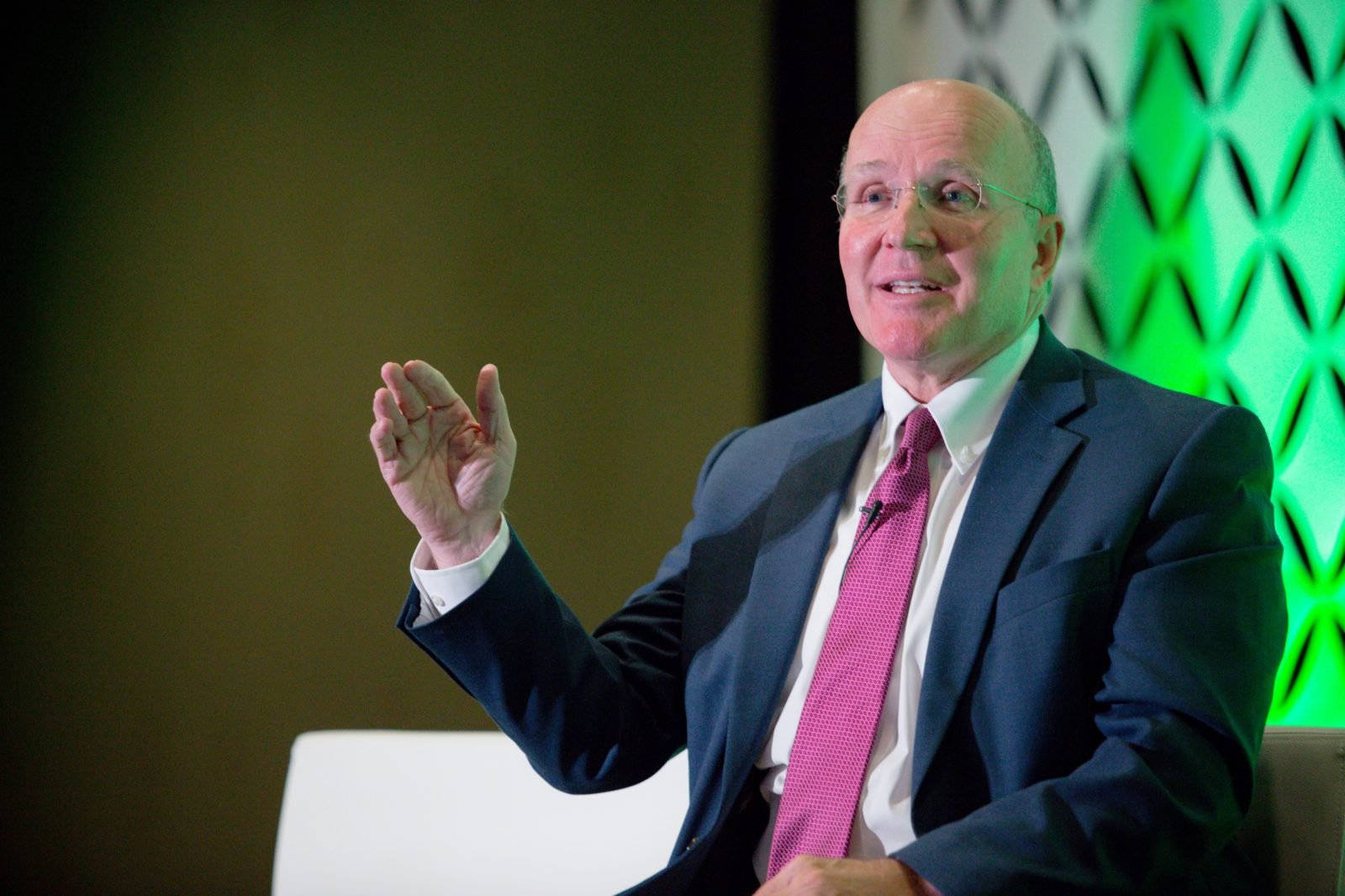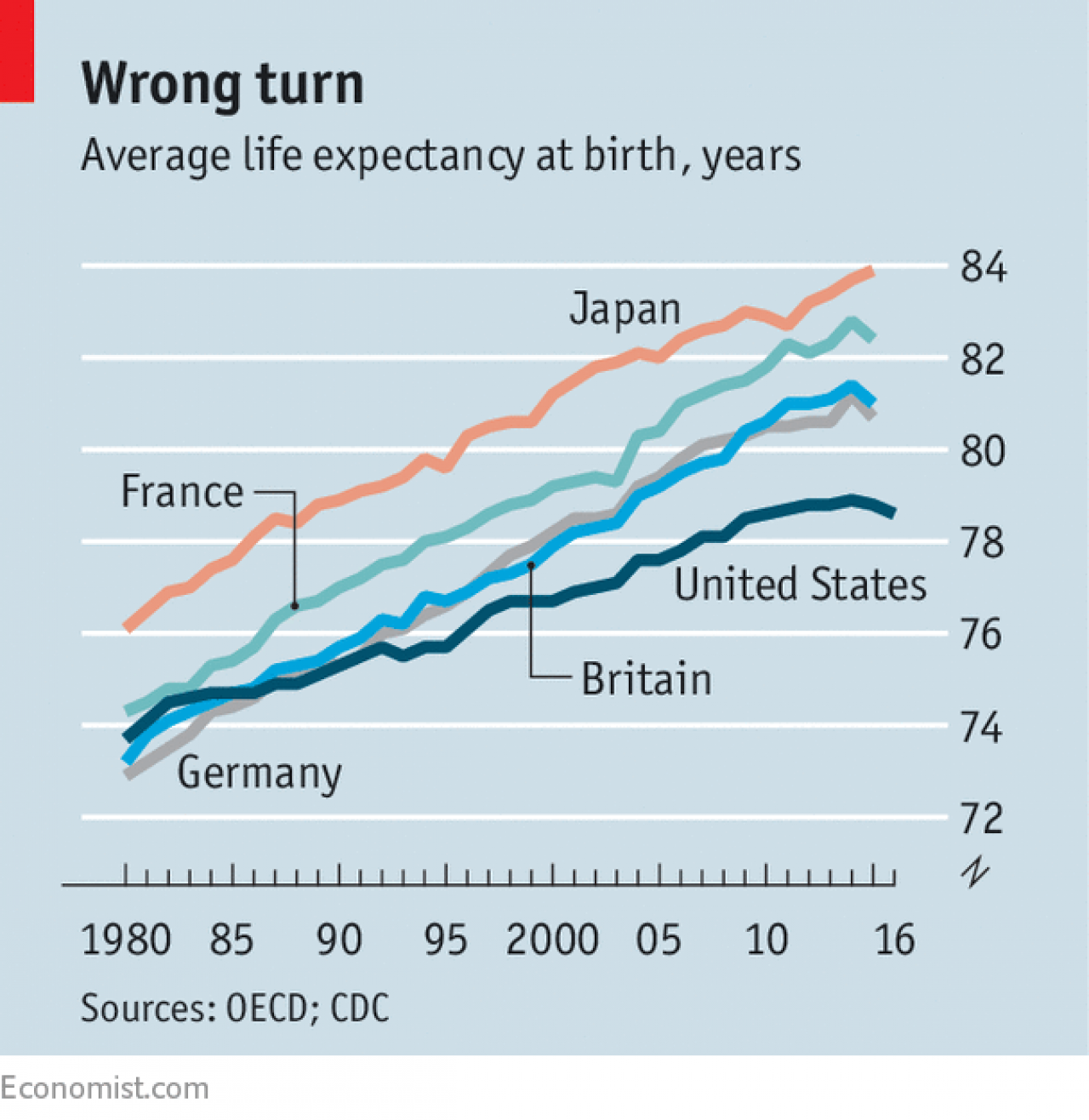Ron’s Topics
“This Fancy Restaurant Just Introduced Surge Pricing,” Money, January 11, 2018, Richard Vines/Bloomberg
One of London’s leading restaurants: Bob Bob Ricard, where each table has a call-button for Champagne, has introduced surge pricing. The same menu will now offer:
25% lower prices during off-peak times (Monday Lunch)
15% off mid-peak (Tues/Sun dinner)
Sat dinner is full price
The Fairness effect is being handled well: It is not changing the menu, it’s just establishing that certain days will cost less, thereby offering a discount off standard rather than a surcharge for peak times.
We wonder if same size parties will end up spending more at off-peak times, given this discount?
The surge pricing does not apply to wine and champagne.
“Not great, again,” The Economist, January 6, 2018
According to a Center for Disease Control report dated December 21, 2017, life expectancy in the USA fell in 2016 for the second year in a row. The last time this happened was 1962-63. For a three year decline, you have to go back to the Spanish flu pandemic a century ago.
Life expectancy is now 78.6 years, down from 78.9 in 2014 (two years lower than the average in OECD countries), and 78.7 in 2015.
One cause is the epidemic of addiction to opioids, which claimed 63,000 lives in 2016.
The leading cause of death remain heart disease and cancer, which have leveled off, and even declined a little.
The category known as “unintentional injuries”, which includes overdoses, has moved from third to fourth place from 2015. Six percent of deaths in 2016 were individuals in the prime of their lives, ages 25-34.
Preliminary data for 2017 indicate these deaths will continue to rise.
The Economist then blames president Trump for not appointing a drug tsar appointed, and not spending more money.
Good news: the number of deaths in 2017 on regularly scheduled passenger jets: 0, a decline from 2,429 in 1972 and 761 in 2014.
“Look, Ma, No Driver,” CSAA
Last November, CSAA and Keolis launched a level 4 autonomous minibus in Las Vegas that navigates a three-block circuit in a downtown neighborhood.
“Home runs,” The Economist, December 23, 2017: Parcels are delivered an average of 1.5 times in the Nordic region due to worries over “porch-piracy.” Forty percent avoid online purchases.
Now, wirelessly connected locks, security cameras, and an App ($199) allow delivery people to enter residences to drop off packages.
Amazon is testing this system in 37 American cities, WalMart also, and even Sears for appliance repairs.
“Beyond bitcoin,” The Economist, January 13, 2018
Dogecoin was launched in 2013 as a joke, and as of January 7 had $2 billion in circulation. Others, such as UFOcoin, Putincoin, Sexcoin, Insanecoin ($7m) have also been launched.
Around 40 coins have a market value exceeding $1 billion.
On January 9th Kodak launched a coin that allows photographers to charge for their work.
Telegram, a messaging service with 180 million users, will launch Gram to pay for range of services from online storage to virtual private networks.
Reportedly, Facebook is looking into creating a digital coin. Would Bitcoin’s days be numbered?
“Taming the titans,” The Economist, January 20, 2018
Google, Facebook, Amazon, Apple are all BAAD: Too big, anti-competitive, addictive, destructive to democracy.
Anti-competitive - Facebook and Google control 80% of news referral traffic; Google has an 80% market share in search, while Amazon controls 40% of online commerce. They all have a huge advantage due to network effects.
Addictive - Teens who use social media extensively are less happy than peers. Depression and suicides have risen. Apple CEO Tim Cook told his nephew to lay off social media.
Damaging democracy - People now get their news in filter bubbles, strengthening confirmation bias, and fake news is on the rise.
Proposed actions - “Hipster antitrust.”
Break them up!
Utility regulation - Mark Zuckerberg, you’ll rue the day you referred to Facebook as a utility, as ubiquitous as electricity. It’s hard to regulate prices when they are $0, so more likely regulators would cap profits.
Prevent new acquisitions
Data portability and interoperability. Customer data binds users to you and data gives them a huge competitive advantage. Let customers move their data elsewhere, and force companies to share the data with other firms.
Like sexual harassment scandals, M for monopolist, is today’s scarlet letter.
Content liability—your blanket protection won’t last. Germany can now impose fines if extremist content is not taken down within 24 hours.
Ed’s Topics
Alexander C.R. Hammond, “The Ice Box Cometh”
In 1919, a refrigerator cost $11,000 in today's money
Tasks that needed servants or, later on, expensive equipment, are now cheap for all
Most people have a cheap fridge three times the size of the earliest models
“Stop Calling it an Opioid Crisis,” CATO, January 9, 2018
The "crisis" talk is cause some people in very serious pain to avoid any and all opioids for fear of getting addicted. While that is possible, proper usage makes it unlikely.
The Greatest Showman movie, on P.T. Barnum
Ed gives it a thumbs up and recommends people see it and look for the entrepreneurial angle.
See TSOE Episode #55 where we profiled P.T. Barnum
“Paying More at the Pump Will Not Fix California’s Roads if Politicians Keep Raiding the Gas-Tax Fund,” William F. Shugart II, Kristian Fors, January 5, 2018, Independent Institute
By July, Californians will be paying 65.7 cents per gallon in tax alone. Worse still the money, which is supposed to go to fix the roads, isn't.
Tax reform has done what the $15 minimum wage could not. See our TSOE Episode #88: Do Corporations Pay Taxes?
Partial list of companies raising the base wage to $15 per hour are:
American Savings Bank, 1,100 employees
Americollect, 250 employees
Aquesta Financial Holdings, 95 employees
Associated Bank
Bank of Hawaii, 2,074 employees
Bank of James
Bank of the Ozarks, 2,300 employees
Central Pacific Bank, 850 employees
Comerica Bank, 4,500 “non-officer” employees
First Hawaiian Bank, 2,264 employees
HarborOne Bank, 600 employees
INB Bank, 200 employees
Regions Financial Corp.
SunTrust Banks, 24,000 employees
Territorial Savings Bank, 247 employees
















